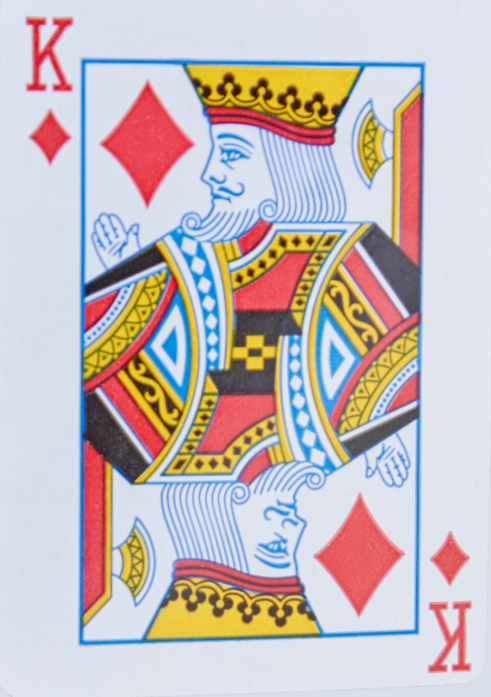Christ the King in an Age of No Kings
/Here we are again at the Feast of Christ the King, or, as it’s officially called by the Catholic Church, the Solemnity of Our Lord Jesus Christ, King of the Universe. The image of Christ as a king may have some baggage with it for those of us in countries where we don’t have a king – and don’t want one. The United States was founded to get away from an oppressive monarchy, and in recent months, thousands and thousands of people have protested with the rallying cry of “No Kings.” I’d say our feelings about kings are pretty clear. I can’t help but look at this feast through that lens. No kings. No misuse of power. And yet, we call Christ a king. How do you feel about that?
Ancient Israel had a monarchy, but that didn’t usually go so well for them. God was their king, and God wanted the people to trust God, not a human king or false gods or their own might. Faithfulness to God meant following God’s commandment, not a King’s. And yet, when the people begged God for a king, God finally relented and gave them Saul, who didn’t end up being a very faithful king. Then God gave the people David, and what we have in our reading is the moment when David is anointed king. Ultimately, David was faithful to God and faithful to the people. Except there was that one time when he pretty much broke all Ten Commandments in one afternoon. He lost sight of God and had eyes only for Bathsheba. Maybe that doesn’t make him a bad King – just a very human one. So, David was a powerful and imperfect king.
But we’re here to reflect on Christ the King, a descendant of the revered but imperfect King Davi. Interestingly, the Gospel Reading we have for this feast does not depict Jesus in glory, and he sure doesn’t look like a king. What we have is Jesus hanging on a cross, right before he’s executed by the state. We know that Jesus is all-powerful, and yet, he doesn’t use that power to save himself, as the soldiers and religious leaders sarcastically tell him to do. Why not? And what was his power for, if not to save himself?
I’m reading Brené Brown’s latest book Strong Ground: the Lessons of Daring Leadership, the Tenacity of Paradox, and the Wisdom of the Human Spirit, and her discussion of power is so relevant. She quotes the Rev. Dr. Martin Luther King Jr.’s definition of power: “the ability to achieve purpose, and effect change.” Brené Brown also contrasts different kinds of power: “power over” versus “power with.” She says that “leaders who work from power over believe that power is finite and use fear and control to self-protect and serve self-interest,” among other harmful practices. “Leaders who work from power with/to/within believe that power becomes infinite and expands when shared with others.” She says leaders like this “frame leadership as a responsibility to be in service to others rather than served by others” (p. 99).
I’m not sure if King David consistently used power over people, but when it came to what happened with Bathsheba, I would say he did. He lusted after her, took her for his own (with questionable consent from her), killed her husband, and did some devious things to cover it up. Not his finest moment. What a terrible misuse of power. I would also say that in our day, we have leaders who do this kind of leading too, maybe not is such extreme ways, but they use fear and coercion to exert power over people in other ways. Unfortunately, plenty of people in leadership are so fixated on keeping power that most of their actions center around maintaining it, even at the expense of other people.
And then we have Jesus. He spent his life healing and teaching and preaching. He took special care of the most vulnerable people and even sought them out. He empowered the people around him as he mentored them and taught them how to heal and teach and preach themselves. He was certainly faithful to God, a God he imaged as an overly indulgent father who would give everything to his children and as a shepherd who would leave everything to save one sheep. In our Gospel Reading, we have him hanging on a cross because he’s unwilling to use his power for himself. In fact, he’ll allow himself to die and then rise only to give power to those he mentored and taught. He gives over his mission entirely to them – and to us. That seems like the ultimate “power with” kind of leadership.
And that’s the kind of king we celebrate at this feast. That kind of leadership is rarely manifested in our time. I catch glimpses of it in some of our secular leaders and in some of our church leaders and other religious leaders, but I long for it to be manifested more fully and more often.
I wonder if this Feast of Christ the King is about the leadership of Christ as King and also about our call to serve. We too use our gifts to heal and teach and preach, to lift up the vulnerable, to be a sign of love, compassion, and hope in the world. As Christ’s disciples, we’re empowered by his mission so deeply that we are literally his body, and so our call is very real: in faithfulness to God, to use any power we have in the service of people.
Loving God, please make it so.
For Reflection:
As you think about Christ’s leadership and inspirational leaders that you see today, what resonates with you?
As you think about leaders who use “power over” rather than “power with,” what do you notice?
As you consider these readings and this feast, what’s God’s call for you? How is God empowering you to serve other people? Maybe you could take some time with God and see what God is saying to you.
By Sister Leslie Keener, CDP
Leslie is the director of God Space, a community-building spirituality ministry in Cincinnati and Northern Kentucky. She’s a Sister of Divine Providence with a Masters in Ministry and a Certificate in Spiritual Direction and Retreats from Creighton University. She directs retreats, meets with people for spiritual direction, hosts the Providence Podcast, and serves as the vocation director for her community. She enjoys music, dancing, and spicy food.



